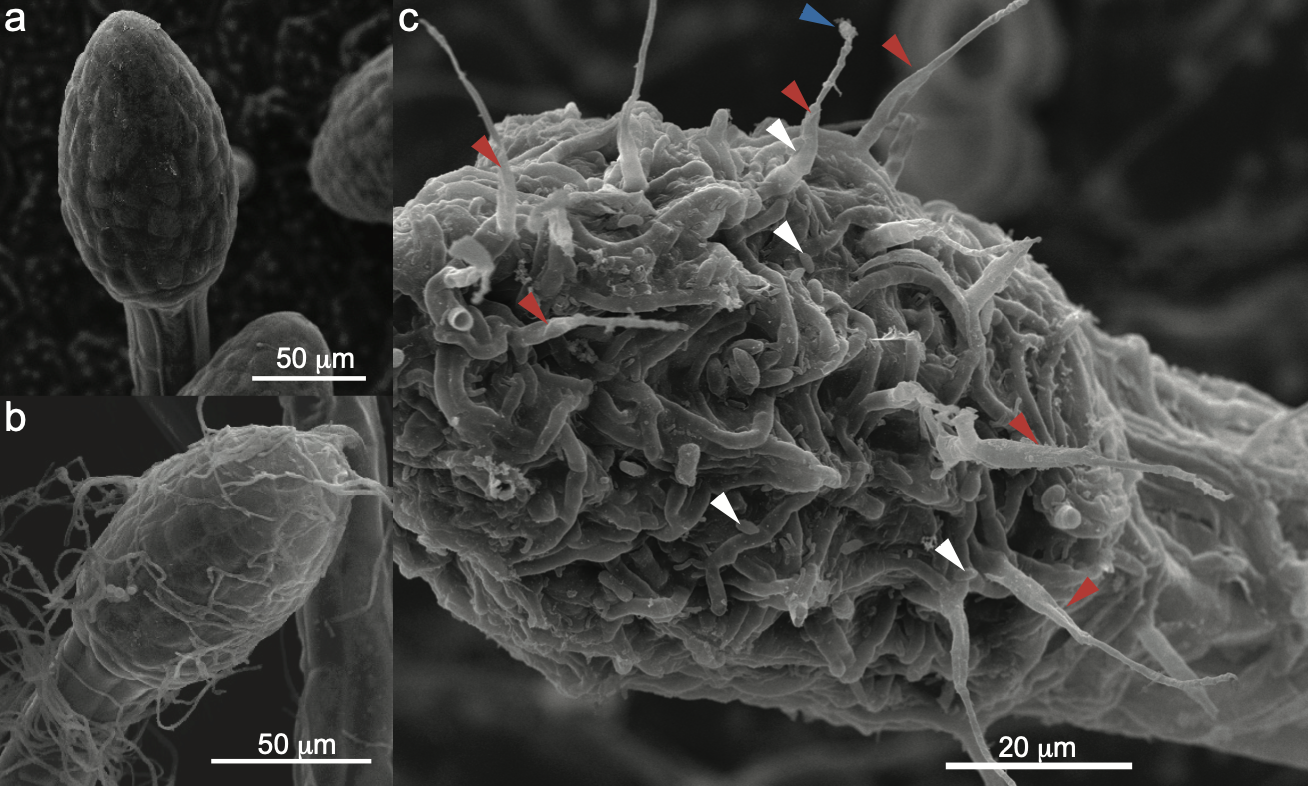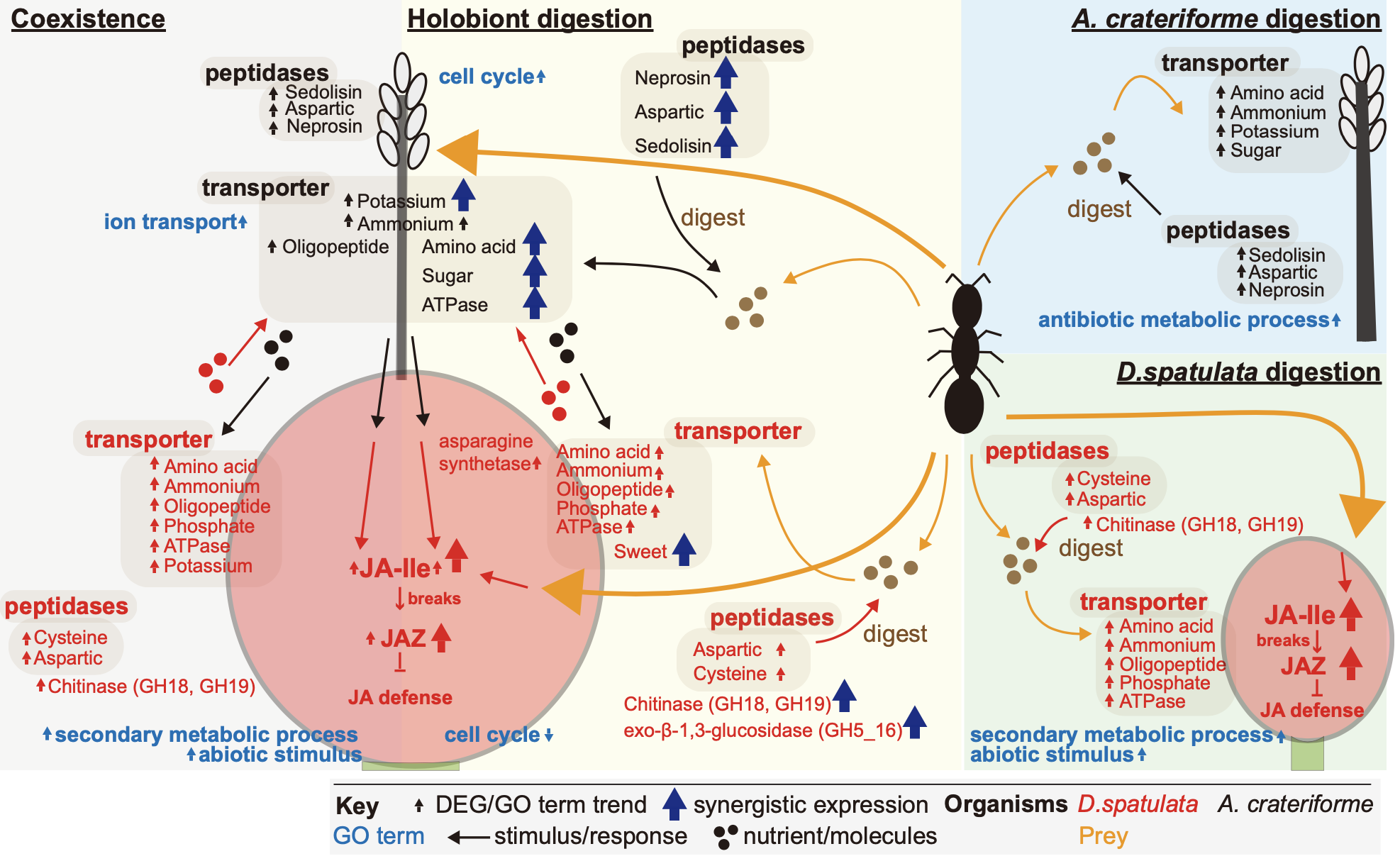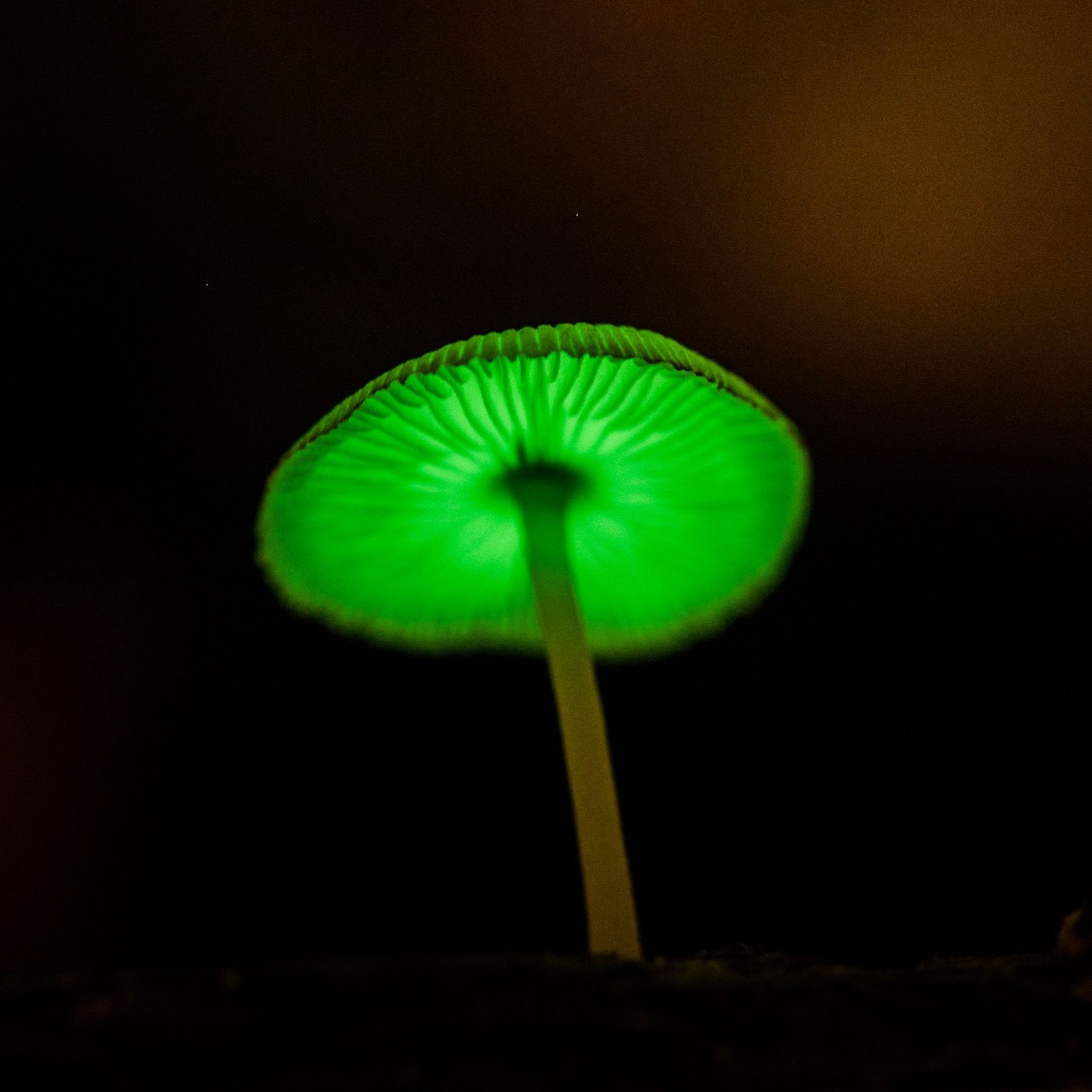
An acidophilic fungus promotes prey digestion in a carnivorous plant

Have you ever heard of a fungus that helps plants digest insects? Carnivorous sundew plants (Drosera spp.) use the sticky glands on their leaves to trap insects, and surprisingly, a friendly fungus assists in their digestion process! Researchers at the Biodiversity Research Center, led by Dr. Isheng Jason Tsai, discovered that the acidophilic fungus Acrodontium crateriforme is a crucial partner in the digestion process of sundew plants. This fungus thrives on the glands of sundew leaves and significantly enhances the plant's ability to break down prey. Astonishingly, both the plant and fungus adjust their gene expression to collaborate, secreting special enzymes that speed up digestion and aid in nutrient absorption. This extraordinary partnership reveals how plants and microbes can join forces in remarkable ways to survive and thrive. The findings of this research were published on August 1, 2024, in the journal Nature Microbiology.

This research was supported by the Academia Sinica’s Investigator Award and the NSTC 2030 Cross-Generation Young Scholar Program. The first author is Dr. Pei-Feng Sun from the TIGP Biodiversity Program. The collaborative team includes Assistant Professor Huei-Mien Ke from Soochow University's Department of Microbiology, Associate Professor Ying-Chung Lin from National Taiwan University’s Department of Life Sciences, Professor Roland Kirschner from the Department of Forestry and Resource Management, and Assistant Professor Ying-Lan Chen from National Cheng Kung University’s Department of Biotechnology and Bioindustry Sciences.
Full Paper: An acidophilic fungus promotes prey digestion in a carnivorous plant
Read more: https://www.nature.com/articles/s41564-024-01766-y





